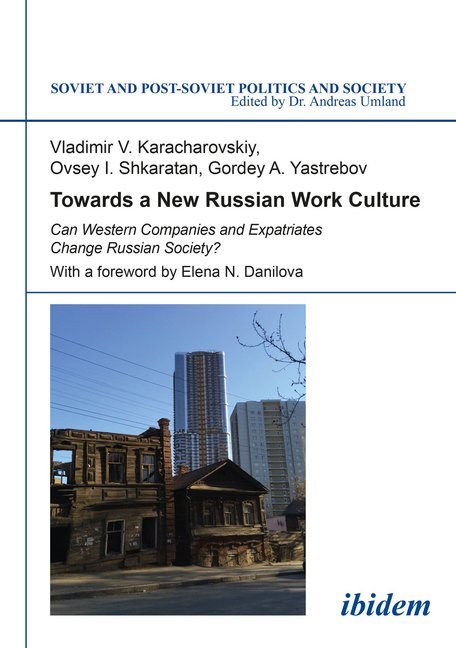
Zustellung: Mi, 30.07. - Sa, 02.08.
Versand in 3 Wochen
VersandkostenfreiBestellen & in Filiale abholen:
This innovative book offers a fresh perspective on the national work culture of Russia and the substantial role foreign institutional and cultural impact has had in shaping it. Russia's contemporary work culture is understood as a national system supplemented by new values and attitudes that have been adopted through the mediation of foreign individuals and corporations or in response to the challenges of Western competition. It is argued that the 'foreign factor' triggers change in the landscape of Russia's work culture, the scope of which depends on the type of influence. However, there is a certain core of the work culture that remains resistant to any external impact.
Mehr aus dieser Reihe
Produktdetails
Erscheinungsdatum
01. Oktober 2016
Sprache
englisch
Auflage
Auflage
Seitenanzahl
256
Reihe
Soviet and Post-Soviet Politics and Society, 157
Autor/Autorin
Vladimir Karacharovskiy, Ovsey Shkaratan, Gordey Yastrebov
Herausgegeben von
Andreas Umland
Serie hrsg. von
Andreas Umland
Verlag/Hersteller
Produktart
kartoniert
Gewicht
350 g
Größe (L/B/H)
210/150/12 mm
Sonstiges
Taschenbuch
ISBN
9783838209029
Entdecken Sie mehr
Pressestimmen
This volume is by no means just an exposition of yet another point of view on the phenomenon of Russian work culture and its role in Russia`s `modernization breakthroughs. It presents an unexpected and original approach, an absolutely new perspective of this seemingly old topic. On the one hand, the authors consider Russia s national work culture in the context of `foreign influence and test it for resistance to external pressures. On the other hand, they reveal `the foreign trace in its fabric-the features that were introduced and internalized in the course of direct and indirect contacts with foreign cultures. For the authors, Russian national work culture is not a finished, static entity, but a dynamic system that is in permanent interaction with (predominantly) Western culture and has largely developed in direct competition with it. It is this approach that makes this book exceptionally appealing. Vladimir N. Leksin, Institute of System Analysis of the Russian Academy of Sciences
Bewertungen
0 Bewertungen
Es wurden noch keine Bewertungen abgegeben. Schreiben Sie die erste Bewertung zu "Towards a New Russian Work Culture" und helfen Sie damit anderen bei der Kaufentscheidung.

































